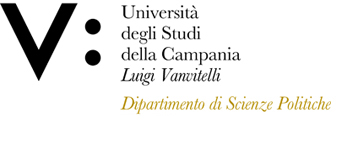ISTITUZIONI DI DIRITTO INTERNAZIONALE E DELL'UNIONE EUROPEA (Corso Integrato)
Italiano
| Lingua di insegnamento | Italiano |
| Contenuti | L'insegnamento comprende due moduli: il primo sulle istituzioni di diritto internazionale e il secondo sulle istituzioni del diritto dell'Unione europea, ciascuno da 6 CFU. |
| Testi di riferimento | Per il 1° modulo: Istituzioni di diritto internazionale: |
| Obiettivi formativi | L'insegnamento intende fornire conoscenze di base sull’ordinamento internazionale e sull’ordinamento dell’Unione europea (UE). Nello specifico il corso si propone di fornire un quadro generale della natura e struttura e delle funzioni normativa, di accertamento e esecutiva nei due ordinamenti nonché far conoscere alcune tematiche di attualità nel settore. |
| Prerequisiti | Non è prevista alcuna propedeuticità. Tuttavia, in considerazione del contenuto dell'insegnamento, è opportuno che gli studenti abbiano conoscenze di base del diritto pubblico e del diritto privato, secondo i programmi previsti nella laurea triennale in Scienze Politiche, oltre che una certa conoscenza di inglese e francese. |
| Metodologie didattiche | Il corso si articola in lezioni frontali (90%) e nell’esame di casi pratici e dibattiti in aula (10%) per un totale di 72 ore. I casi pratici saranno affrontati attraverso l'analisi della prassi relativa e della giurisprudenza internazionale ed europea. I dibattiti affronteranno tematiche di rilievo contemporaneo. |
| Metodi di valutazione | L'esame è orale o scritto con votazione in trentesimi. Il voto minimo per superare l'esame è di 18/30. L'esame orale consiste in un colloquio incentrato su sei domande. L'esame scritto consiste in 25 domande di cui almeno 1 a risposta aperta. L'esame è volto a verificare il livello di conoscenza degli argomenti del programma e il livello di padronanza del linguaggio giuridico specialistico. |
| Altre informazioni | Gli studenti possono sostenere una prova parziale relativa a ciascuno dei due moduli. Il voto finale risulterà dalla media dei voti ottenuti in ciascuno dei moduli. |
| Programma del corso | 1° Modulo: Istituzioni di diritto internazionale (6 CFU) |
English
| Teaching language | Italian |
| Contents | The course consists of two modules: Institutions of International Law and Institutions of UE Law. The first module deals with the international legal order, which was created by the States starting from the Eighteen century to regulate their relationship through a mechanism of reciprocal rights and duties. The module illustrates the core characteristics of the international legal order which is completely different from domestic legal orders, from the topic of the international personality to the legal functions, namely: the jurisdiction to legislate, the jurisdiction to execute and the jurisdiction to adjudicate. The module not only examines in depth these functions but also analyses how the international legal order aims at reaching its fundamental objectives: the coexistence among States and the maintenance of international peace and security. |
| Textbook and course materials | For the 1st Module: Institutions of International Law |
| Course objectives | The course aims at giving the students a basic knowledge of the international legal order and of the UE legal order. In particular, the course intends to give a general overview of the normative, adjudicative and executive functions in both the international and the EU legal orders as well as to analyse some current topics in the field. |
| Prerequisites | No prerequisites are required. However, in consideration of the course’s contents, it is advisable that students have a basic knowledge of public law and private law, according to the programs for the three-year Degree in Political Sciences, as well as some fluency in English and French. |
| Teaching methods | The course is articulated in lectures (90%), in the analysis of cases and group activities (10%) for a total of 72 hours. Cases will be tackled through the lens of States practice and of international and EU case law and they will concern current topics. |
| Evaluation methods | Students shall undergo an oral or a written exam with a grading out of thirty. The minimum mark to pass the exam is 18/30. The oral exam consists of a six-question colloquium. The written exam consists in 25 questions of which at least one is open-ended. The exam is aimed at ascertaining the level of knowledge of either the relevant topics and the legal terminology skills. |
| Other information | Students may take a partial exam on each module composing the course. The final mark will result from the average of the marks obtained in each of the modules. |
| Course Syllabus | 1st Module on International Law (6 ECTS) |








